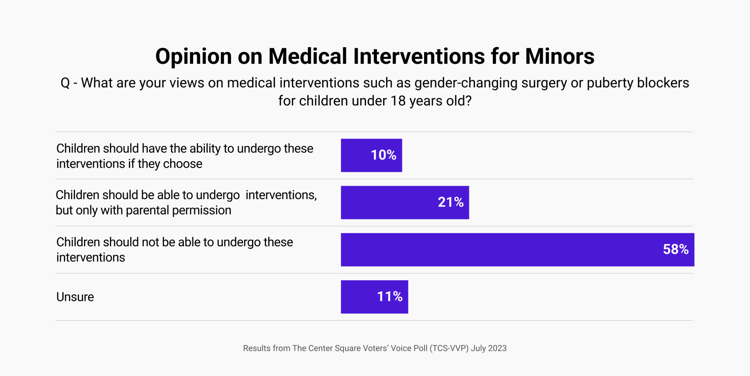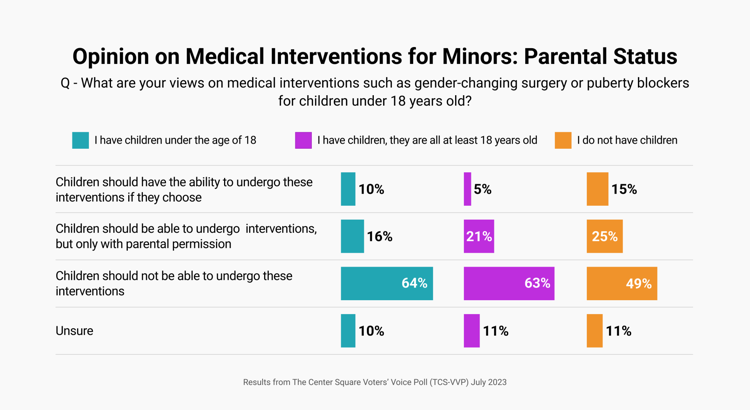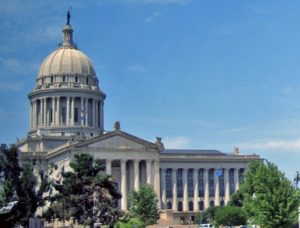Most voters oppose transgender medical procedures on children
(The Center Square) – Few voters think children should undergo transgender interventions even with parental permission.
That’s according to The Center Square Voters’ Voice Poll of 2,500…

(The Center Square) – Few voters think children should undergo transgender interventions even with parental permission.
That’s according to The Center Square Voters’ Voice Poll of 2,500 registered voters across the U.S., conducted by Noble Predictive Insights. The poll found that 58% of those surveyed are against medical interventions such as gender-changing surgery or puberty blockers for children younger than 18 years old.
There were just 10% who said children should have the ability to undergo these inventions if they choose and another 21% who said children should be able to undergo these interventions, but only with parental permission.

The poll found 62% of men and 54% of women were against gender-changing surgery or puberty blockers for children.
Mike Noble, founder and CEO of Noble Predictive Insights, said it was noteworthy how little public support there is for transgender interventions of minors.
“What’s surprising – for how much you hear about it, how much it is in your face – you look at the public opinion data and there’s definitely not a majority who are in support of this,” Noble said. “Six in ten are saying, ‘That’s a non-starter.'”
There was support for gender-changing surgery or puberty blockers among those voters who identified themselves as “a strong Democrat.” There were 22% of that voting bloc who said children should have the ability to undergo those inventions and another 40% who believe it should be allowed but only with parental permission. Just 23% of “strong Democrats” were against the interventions and another 15% were unsure.

Sixty-four percent of voters who said they had children under the age of 18 said minors should not be having these transgender medical interventions. And 40% of voters who said children should be able to have the medical interventions, with 25% of that group saying it needed to come with parental approval.
“The people who were the least on board were people who had children under the age 18,” Noble said. “The ones who are the most supportive are the ones who never had children.”
State legislatures across the country have debated laws either banning such procedures for minors or preventing such bans from being put in place, with laws varying widely.
States such as Texas, Missouri, North Carolina, Tennessee, Arkansas, Florida, Indiana, Georgia and at least 10 other states have put restrictions in place, with many facing legal challenges.
California is leading a coalition of 20 mostly blue states, including Illinois, Michigan, New York, New Jersey, Massachusetts, Oregon and Washington in opposing such restrictions.
The Center Square Voters’ Voice Poll was conducted by Noble Predictive Insights from July 31 to Aug. 3. Unlike traditional national polls, with limited respondent count of about 1,000, Noble Predictive surveyed 1,000 registered Republicans, 1,000 registered Democrats, and 500 independents, culminating in a sample size of 2,500. The margin of error for the aggregate sample was ±2.4%, with each political group independently weighted. For information about the methodology, visit www.noblepredictiveinsights.com.



